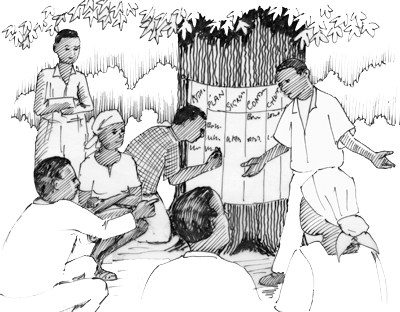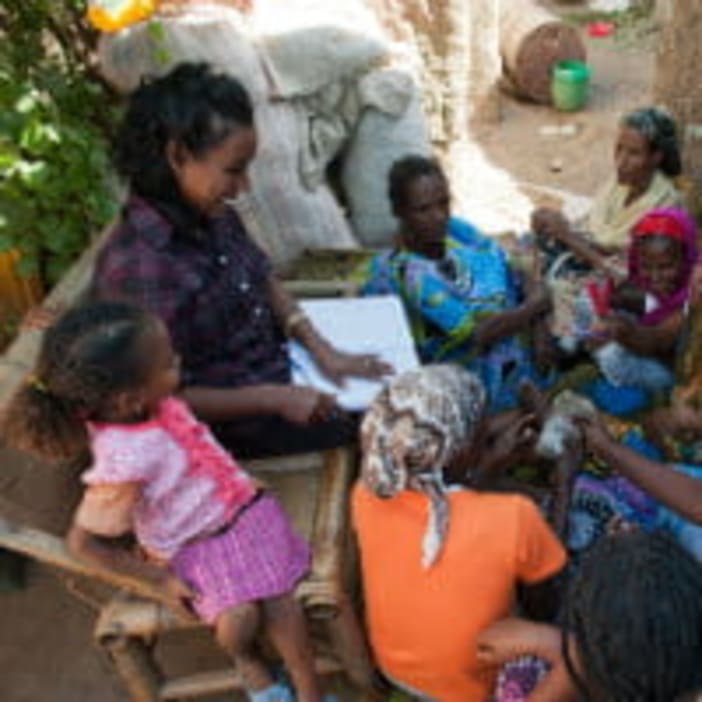- When a group plan their aims and activities, it is easy to be positive and to assume everything will go well. However, all kinds of things may change how planned activities work out. Often things don’t turn out as planned.
- When planning activities, it is very helpful to consider what may unexpectedly change and put the activities at risk. For example, key members may become ill or leave the group; there may be a natural disaster; the Treasurer may disappear with the money; another group may start producing the same products.
- Once risks are considered, the group will be better prepared to deal with the unexpected.
Discussion
- Consider again the group wanting to improve their community’s health. First of all, consider what they assume will remain the same. For example: Assume clinic will remain open / Assume that people will use improved water sources. Can you think of more?
- What are possible risks they may have to face? For example: Salaries will be increased by the government by 50% / There may be a major outbreak of cholera or typhoid. Can you think of more?
- Think of the assumptions and risks for each one of the objectives you have listed.
- Repeat this exercise again with some other imaginary objectives.









